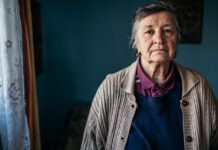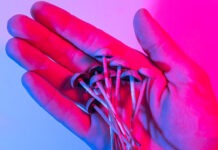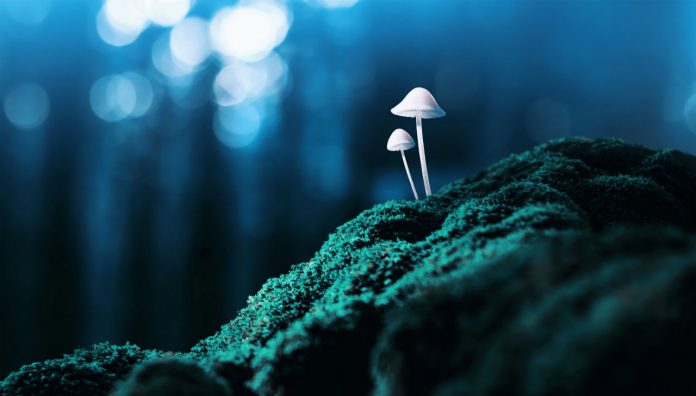Psilocybin, a psychoactive compound found in ‘magic mushrooms’, is being trialled in the treatment of terminally ill patients to reduce symptoms of depression and anxiety at Melbourne’s St Vincent’s Hospital.
The treatment has proven to be successful in several international clinical trials, including US-based John Hopkins University in 2016 and Imperial College in London in 2017.
The St Vincent’s trial, headed by clinical psychologist Dr Margaret Ross, aims to provide relief for terminally ill patients – many of whom suffer from underdiagnosed mental health problems.
Major depression in terminally ill patients has been found to be common, ranging from 25% to 77%.1
While depression can diminish quality of life for patients, it has also been associated with a further decline in survival rate and treatment adherence in terminally ill cancer patients. A 2013 study found that about a third of patients with non-small cell lung cancer were suffering from depression. Those patients showed a median overall survival rate of 6.8 months, compared to that in non-depressed patients whose median survival rate was 14 months.2
Researchers from the John Hopkins University trial reported that the compound psilocybin is particularly effective at altering damaging thought processes.3
Serotonergic hallucinogens, including psilocybin (psilocin) and lysergic acid diethylamide (LSD) and mescaline, are a structurally diverse group of compounds that are 5-HT2A receptor agonists. They produce a unique profile of changes in thoughts, perceptions, and emotions.3,4,5
The John Hopkins trial administered psilocybin to cancer patients with a life-threatening diagnosis. Varying doses of psilocybin were given over a period of nine months, with five weeks between sessions. The study found that patients who received high doses of psilocybin (22 or 30 mg) reported decreases in symptoms of depression and anxiety as well as increased quality of life and optimism. Patient reports were echoed by psychiatrists who observed similar results.3
Furthermore, these changes were sustained with 80% of participants continuing to show ‘significant’ decreases in symptoms of depression and anxiety at a six-month follow-up.
Similarly, the Imperial College study found patients with severe depression experienced decreased symptoms after they were given two doses of psilocybin, 10 mg and 25 mg respectively, one week apart.3
fMRI scans revealed observable changes in their cognitive functioning.
‘Whole-brain analyses revealed post-treatment decreases in cerebral blood flow (CBF) in the temporal cortex, including the amygdala. Decreased amygdala CBF correlated with reduced depressive symptoms,’ researchers said in the subsequent paper.6
The St Vincent’s trial will commence in April, when a group of 30 patients will be given 25 mg of synthetic psilocybin alongside psychotherapy sessions.
‘We don’t want it to be underwhelming, we don’t want it to be overwhelming,’ Dr Ross said. ‘We know that higher doses are associated with anxiety but if it’s too low a dose you’re not really going to experience that psychological shift in the thinking that we’re really looking for.’
While more trials need to be conducted, the positive results suggest that with more research, psilocybin could be offered routinely for relief of anxiety and depression in terminally ill patients.
References:
- Fine RL. Depression, anxiety, and delirium in the terminally ill patient. Proc (Bayl Univ Med Cent). 2001;14(2):130-3. At: https://www.ncbi.nlm.nih.gov/pmc/articles/PMC1291326/
- Arrieta Ó, Angulo LP, Núñez-Valencia C et al. Association of depression and anxiety on quality of life, treatment adherence, and prognosis in patients with advanced non-small cell lung cancer. Ann Surg Oncol 2013; 20: 1941-1948. https://doi.org/10.1245/s10434-012-2793-5
- Griffiths, R. R., Johnson, M. W., Carducci, M. A., Umbricht, A., Richards, W. A., Richards, B. D. Klinedinst, M. A. (2016). Psilocybin produces substantial and sustained decreases in depression and anxiety in patients with life-threatening cancer: A randomized double-blind trial. Journal of Psychopharmacology, 30(12), 1181–1197. https://journals.sagepub.com/doi/full/10.1177/0269881116675513#_i37
- Halberstadt AL. Recent advances in the neuropsychopharmacology of serotonergic hallucinogens. Behav Brain Res 2015; 277: 99–120. At: https://www.sciencedirect.com/science/article/pii/S0166432814004562?via%3Dihub
- Nichols DE. Psychedelics. Pharmacol Rev 2016; 68(2): 264-355 http://pharmrev.aspetjournals.org/content/68/2/264
- Carhart-Harris RL, RosemanL et al. Psilocybin for treatment-resistant depression: fMRI-measured brain mechanisms. Scientific Reports 2017. Epub 2017 October 13: https://www.nature.com/articles/s41598-017-13282-7#article-info



 Kelly Abbott MPS[/caption]
Kelly Abbott MPS[/caption]


 Owner of Canberra's Capital Chemist Southlands Louise McLean MPS.[/caption]
Owner of Canberra's Capital Chemist Southlands Louise McLean MPS.[/caption]

 Supplied by CSL Seqirus[/caption]
Supplied by CSL Seqirus[/caption]








